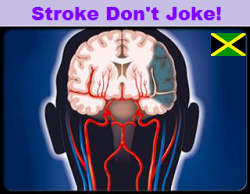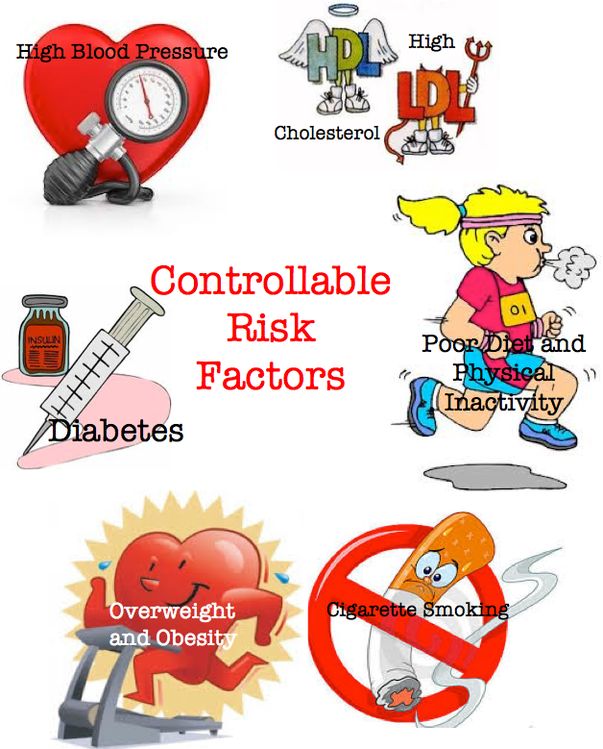Recurrent Stroke
Preventing Another Stroke
Recurrent stroke makes up about one out of four of the strokes experienced in the Jamaica every year. The best defense against recurrent stroke is good offense. Equip yourself with information and tips for preventing another stroke. Be aware of your symptoms and risk factors. Managing your health will help reduce the risk of recurrent stroke.
Recurrent stroke makes up about one out of four of the strokes experienced in the Jamaica every year. The best defense against recurrent stroke is good offense. Equip yourself with information and tips for preventing another stroke. Be aware of your symptoms and risk factors. Managing your health will help reduce the risk of recurrent stroke.
Having a stroke means greater risk for another (or recurrent) stroke.
FACT: Approximately 100,000 people in Jamaica experience a stroke each year.
FACT: At least one in four stroke survivors will experience another stroke.
FACT: Within five years of a first stroke, the risk for another stroke can increase more than 40 percent.
FACT: Recurrent strokes often have a higher rate of death and disability.
TIPS FOR MANAGING RECURRENT STROKE RISK
Identify the risk factors that caused your first stroke. Once you have identified and discussed the causes with your healthcare professional, address each of risk factors individually and find ways to gain control so that you can be active in preventing a recurrent stroke. The strategies will be different for each risk factor. The goal is for you to make a plan and take control of your health.
FACT: Approximately 100,000 people in Jamaica experience a stroke each year.
FACT: At least one in four stroke survivors will experience another stroke.
FACT: Within five years of a first stroke, the risk for another stroke can increase more than 40 percent.
FACT: Recurrent strokes often have a higher rate of death and disability.
TIPS FOR MANAGING RECURRENT STROKE RISK
Identify the risk factors that caused your first stroke. Once you have identified and discussed the causes with your healthcare professional, address each of risk factors individually and find ways to gain control so that you can be active in preventing a recurrent stroke. The strategies will be different for each risk factor. The goal is for you to make a plan and take control of your health.
- Stop smoking — it doubles risk for another stroke.
- Manage high blood pressure — high blood pressure is the most important modifiable risk factor for stroke. People who have high blood pressure have at least one and a half times the risk of having a stroke.
- Medications — Take medication as prescribed as this is critical to recovery and recurrent stroke prevention. Research shows that at least a quarter of stroke survivors stop taking one or more of their prescribed stroke prevention medications within the first three months — when the chance of having another stroke is highest—after having a stroke.
- Manage high cholesterol — cholesterol or plaque build-up in the arteries can block normal blood flow to the brain and cause a stroke and increase risk of heart disease.
- Keep diabetes under control — people with diabetes are up to 4 times as likely to have a stroke as someone who does not have the disease.
- Manage atrial fibrillation (Afib) -- Afib, a type of irregular heartbeat, increases your stroke risk five times, so it’s important to work with a healthcare professional to control it.
- Eat a healthy diet — maintaining a diet low in calories, saturated fats, trans-fats and cholesterol helps manage both obesity and healthy cholesterol levels in the blood, which also reduces risk for stroke.
- Increase physical activity — A recent study showed that people who exercise five or more times per week are less likely to have another stroke. Read more tips for how to incorporate physical exercise into your daily routine.
- Control alcohol use — some studies say that drinking more than 2 drinks per day may increase stroke risk by 50 percent. Talk with your healthcare professional about alcohol use and how it can best be controlled to prevent another stroke. Find out the risk factors that caused your first stroke.Take control and live your best life.
- Manage high blood pressure
- Keep diabetes under control
- Eat a healthy diet
- Stop smoking
- Manage high cholesterol
- Manage atrial fibrillation
- Increase physical activity
- Control alcohol use
| explainingstrokebrochure.pdf | |
| File Size: | 1596 kb |
| File Type: | |









